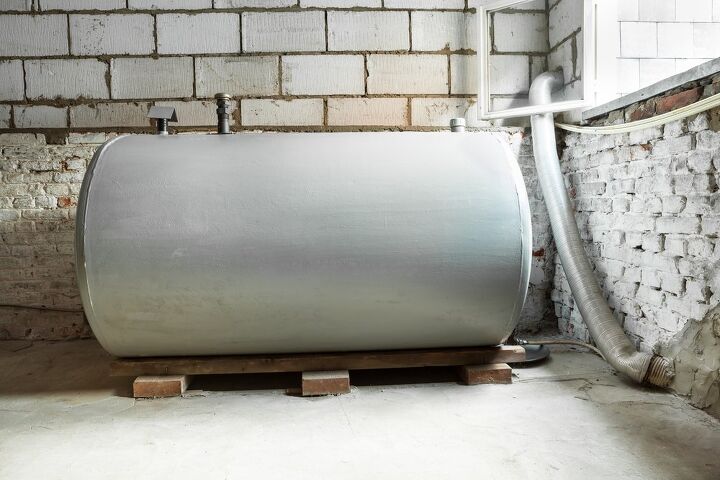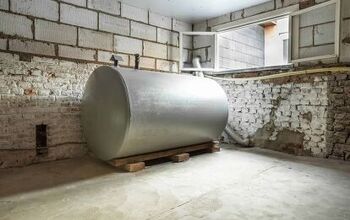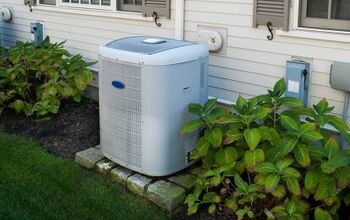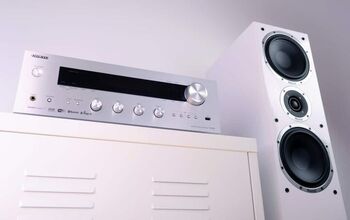Should I Buy A Home That Uses Heating Oil?

As a homeowner, you want to ensure you can have a comfortable living environment. You also want to keep costs manageable since home ownership certainly doesn’t come cheap. One of the considerations when it comes to your future house is your utilities. And you might wonder if you should buy a home that uses heating oil.
Heating oil is a safe and effective way to heat your home. But overall, heating oil adds up to much more expensive energy bills. You also need to consider things like oil delivery, furnace maintenance, and having space for a storage tank. If your future home uses heating oil, it shouldn’t be a dealbreaker, but it’s something worth factoring into your final decision.
Before you opt for a home with heating oil, make sure you understand this fuel source a bit better. Familiarize yourself with the pros and cons and the extra considerations that using heating oil entails.
Is It Worth Buying A Home That Uses Heating Oil?
If you’re house hunting and the home of your dreams has oil heat, it’s certainly not a dealbreaker. Heating oil is safe, effective, and efficient. However, oil can get more expensive than natural gas, depending on supply and demand.
It’s also one of the most expensive ways to heat your home when you look at the big picture. So it’s certainly something worth considering when you’re making your final decision on your future home.
Basically, you likely don’t necessarily want to seek out a house with oil heat. But you don’t have to forget about it if it has it either. Instead, familiarize yourself with the pros and cons of buying a home that uses heating oil.
Pros Of A Home That Uses Heating Oil
Here are the top benefits of using heating oil in your home.
Heating Oil Is Safe
You don’t have to worry about having heating oil in your home. It has a flash point of 140 degrees Fahrenheit, so it’s non-flammable at room temperature. So you don’t have to stress about the oil igniting or causing fires. It is a safe means to heat your home.
You Can Choose Your Supplier
Unlike natural gas and even electricity, you can choose your supplier in many cases. So you have the ability to shop around for the best price and service.
For example, there’s only one electric company in many areas, so you’re stuck with whatever rates you get. Therefore, if having more control and choices in this area is essential to you, this is an advantage of heating oil.
It Is Efficient
Heating oil burns very efficiently, generating roughly 138,500 BTUs per gallon. It has a higher efficiency than propane. And new oil furnaces have an Annual Fuel Utilization Efficiency (AFUE) of approximately 80 to 90 percent.
Oil Furnaces Are Cheaper
Oil furnaces typically cost less upfront than gas furnaces by as much as 25%. Installing an oil furnace averages between $5,000 and $9,000. In comparison, installing a gas furnace can cost over $11,000.
Cons Of Buying a Home That Uses Heating Oil
Of course, any heating system you choose will also come with some downsides. Here are the most notable cons of using heating oil in your house.
Not As Efficient As Gas
Heating oil is efficient, but oil furnaces aren’t as efficient as natural gas options. A natural gas furnace has an AFUE rating of roughly 89 to 98 percent. Of course, this higher efficiency is a big part of why the upfront costs for gas furnaces are around 25% higher.
Overall Heating Costs Are Expensive
Perhaps the biggest drawback of a house that uses heating oil is the cost. Overall, it’s more expensive to heat a home with oil than most other heating sources. A large part of this is due to the volatility of oil prices, which can fluctuate dramatically.
The price of heating oil hinges greatly on oil prices and global supply and demand. In the most recent Winter Fuels Outlook from the U.S. Energy Information Administration, the forecast estimated higher prices.
Here is the breakdown from the recent outlook for winter 2021-2022 spending:
- Natural Gas — $746 per household, approximately 30% higher than the previous winter
- Electricity — $1,268 per household, about 6% higher than the previous winter
- Heating Oil — $1,734 per household, approximately 43% higher than the previous winter
- Propane — The outlook broke it down by region: Northeast – $2,012/household (47% increase), Midwest – $1,805/household (69% increase), South – $1,643/household (43% increase).
Need To Keep Up With Specialized Maintenance
Another downside of using heating oil is you need to worry more about maintenance. Of course, it’s always important to maintain your furnace, but oil furnaces require extra care.
Residue from burning oil can leave behind a residue in your chimney. It’s essential to clean the chimney frequently and replace the oil filters to avoid issues.
You can take care of this easily enough by having a maintenance or service contract with your oil delivery company. But you need to factor in these additional costs on top of the already higher heating costs.
A Home That Uses Heating Oil Requires Space For A Storage Tank
Using heating oil requires keeping a storage tank on site for the oil. You must have oil delivered to your home and store it in a specialized tank. Therefore, you need to make sure you have the necessary space for the tank.
Heating Oil vs. Natural Gas Prices
The last Winter Fuels Outlook expected residential heating oil to be approximately 84 cents per gallon. This price makes it 33% higher than the previous winter.
For natural gas, the expected residential price is $12.92/Mcf. Mcf stands for 1,000 cubic feet and is the measurement used for natural gas. One thousand cubic feet is approximately 7,480.5 gallons. (So, about .0017 cents per gallon if you’re trying to find a more direct comparison).
Should I Switch From Oil To Gas?
Switching from an oil furnace to natural gas could be worth it in the long run if you have the budget for it. You’ll likely increase your home’s value and overall appeal to a larger pool of buyers. You also won’t have to worry about oil delivery, checking the gauge on your fuel tank, or need room for a storage tank.
Your heating costs will go down dramatically, and you’ll end up with a more efficient furnace. However, the upfront costs to make the switch can be anywhere from $4,700 to over $12,000, depending on your situation. It isn’t just about switching your furnace but installing the necessary gas lines, pipe s, etc.
Wrapping Up If You Should Buy A Home That Uses Heating Oil
If you’re ready to buy a house, the heating source can be a determining factor in your final decision. Buying a home that uses heating oil will end up costing you more in energy bills than natural gas or electricity. However, if your dream home uses heating oil, it shouldn’t be an instant dealbreaker for you.
Heating oil is an effective, relatively efficient, and safe way to heat your house. But, it requires regular maintenance, oil delivery, and leaving enough room for a storage tank. Not many homes in the US use heating oil (roughly 4% compared to 50% that use natural gas).
So, the odds of coming across one in your house hunt aren’t common. But if you do, carefully consider the pros and cons and weigh them against how much you love the house. You can always convert your heating oil system to a natural gas one down the road.

Stacy Randall is a wife, mother, and freelance writer from NOLA that has always had a love for DIY projects, home organization, and making spaces beautiful. Together with her husband, she has been spending the last several years lovingly renovating her grandparent's former home, making it their own and learning a lot about life along the way.
More by Stacy Randall













![The 5 Best Angle Grinders – [2022 Reviews & Buyer's Guide]](https://cdn-fastly.upgradedhome.com/media/2023/07/31/9071326/the-5-best-angle-grinders-2022-reviews-buyer-s-guide.jpg?size=350x220)







![Standard Dining Room Table Dimensions [for 4, 6, 8, 10 and 12 People]](https://cdn-fastly.upgradedhome.com/media/2023/07/31/9074335/standard-dining-room-table-dimensions-for-4-6-8-10-and-12-people.jpg?size=350x220)




![10 Most Dangerous Neighborhoods in Baltimore [Updated]](https://cdn-fastly.upgradedhome.com/media/2023/07/31/9075655/10-most-dangerous-neighborhoods-in-baltimore-updated.jpg?size=350x220)
